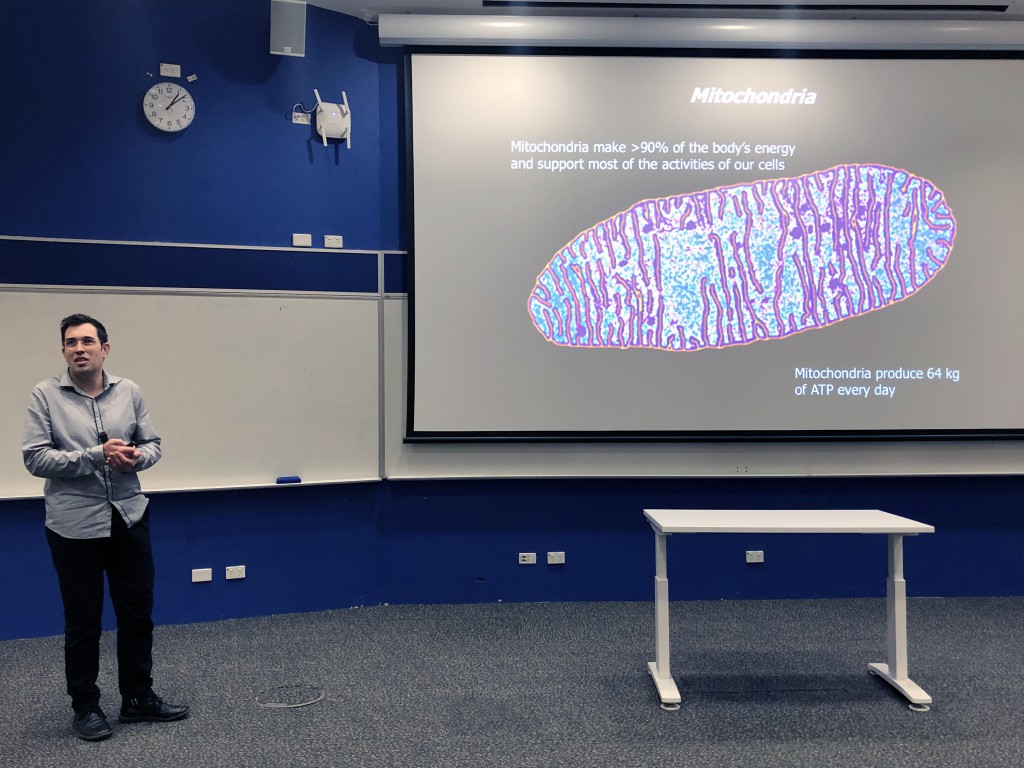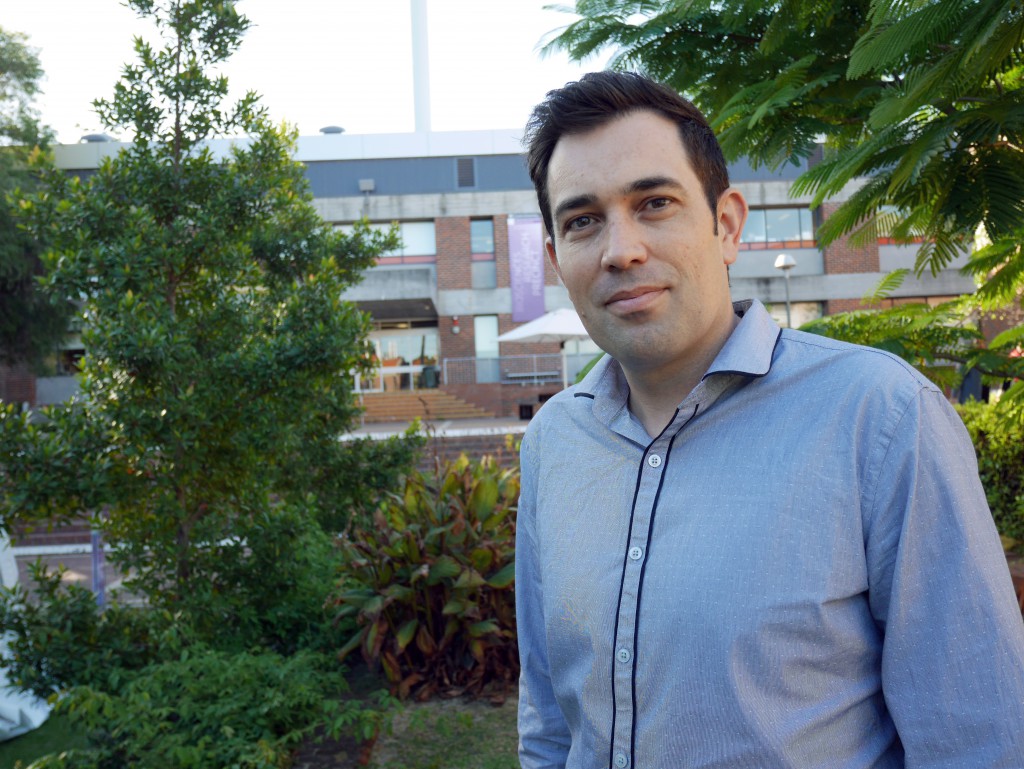The Curtin Health Innovation Research Institute (CHIRI) has a new expert in the burgeoning field of synthetic biology, who will be providing new tools to better understand diseases associated with ageing.
Fascinated with engineering and understanding mammalian gene expression, Professor Oliver Rackham’s research focuses on using synthetic biology – reprogramming the functions of molecules and cells using artificial DNA made in the lab – to develop new therapeutics to target age associated cancer, diseases characterised by loss of metabolic (energy) function, for example in heart failure, and diseases relevant to immune function, including antibiotic-resistant bacteria.

Oliver presented his research on understanding mammalian gene expression as part of the CHIRI Seminar Series.
“The rise of antibiotic resistant bacteria, resistance to cancer chemotherapy and the many orphan genetic diseases without any effective therapies are creating an increasing burden on our health system and a tragic personal cost to society,” says Oliver.
“Current approaches, such as high throughput screening of synthetic and natural product libraries, are proving to be increasingly ineffective and there is a pressing need for new approaches to discover the next generation of therapeutics.”
Inducted into the European Inventor Hall of Fame in 2013 for his involvement in some seminal work in this newly established field of research; a NHMRC Fellow; and President of the Synthetic Biology Australasia scientific society, CHIRI is as thrilled to have Oliver on board as a new Senior Research Leader.
Oliver is also dedicated to supporting future scientists and says having an opportunity to work with some ‘top notch’ Curtin students is a huge bonus.
“It’s hard to find better students anywhere in the world,” he says. “It’s very motivating to work with the enthusiastic, bright next generation who will soon be the ones making the big scientific breakthroughs.”
